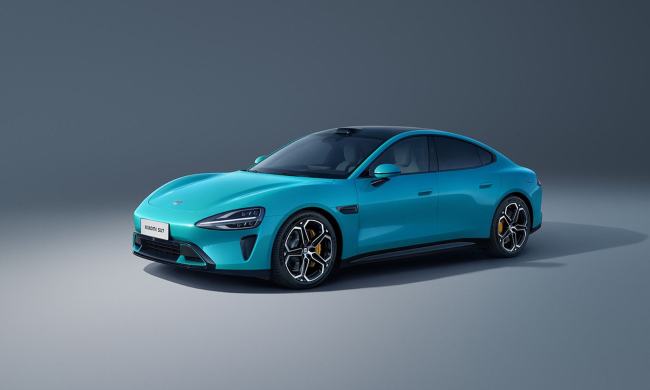One way to keep electric vehicles (EVs) charged is to build facilities similar to gas stations where you pull over and plug in to re-energize your battery. But you need land to build such a facility, and the stops cost drivers time.
Another way is to electrify the road, eliminating the need for stops and keeping the land clear for other purposes. Such a system also removes drivers’ so-called “range anxiety” where they fear their EV going to run out of juice before reaching the next charging station.
Sweden is experimenting with the second option, having just opened what it claims is the world’s first electrified road that uses a powered rail to keep batteries topped up as the EVs zip along.
It’s all part of the nation’s plan to do away with fossil fuels over the next 12 years, the Guardian reports.
The initial rail runs for a distance of 2 kilometers (1.2 miles) from Stockholm’s international airport and transfers energy to an EV’s battery via a movable arm attached to the base of the vehicle. If it overtakes or leaves the electrified road, the arm automatically retracts before reconnecting when it’s above the rail again.
Notably, the system can even keep track of how much energy each individual EV uses, and bill its owner accordingly.
As the Guardian points out, the system allows for batteries to be constantly topped up, allowing for smaller batteries that would reduce manufacturing costs for those who build them.
Current costs put construction of the rail at 1 million euros ($1.23 million) per kilometer, prompting the country to begin incorporating the system into the nation’s 20,000 km (12,430 miles) of highways, rather than its entire road network.
Hans Säll, boss of the eRoadArlanda group that’s backing the project, is confident that current roads and EVs can be easily modified for the new system.
He told the Guardian that electrifying the nation’s highways “will definitely be be enough,” adding, “The distance between two highways is never more than 45 km (28 miles) and electric cars can already travel that distance without needing to be recharged. Some believe it would be enough to electrify 5,000 km (3,100 miles).”
A local logistics firm is the first to put a compatible truck on the newly electrified road, running between the airport and one of its depots.
German engineering giant Siemens has also been exploring road-based solutions for electric-powered trucks, designing a so-called “eHighway” that enables them to draw power from overhead cables as they motor along. Siemens says its eHighway is “twice as efficient compared to internal combustion engines” and as a result would help to reduce energy consumption and cut local air pollution.
The company has been testing the system in Sweden and the U.S., with more trials planned for German highways in 2019.


